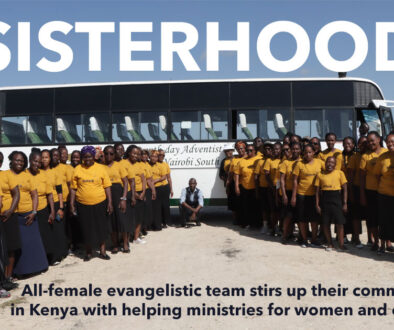Weekend Feature: Washington Church Reaches Out to Migrant Farm Workers & Immigrants
by AT News Team
Like a lot of God’s important work, A Watered Garden Family Learning Center (WG) started from a small thing. Cheryl Brown, who was running a community service ministry for her church, heard the story of a little girl having to translate the doctor’s message to her mother: “You have breast cancer.” Many of those with whom Brown works are Hispanic people with little or no English, so she knew children, who pick up new languages more quickly than adults, routinely had to translate for their parents. But this story really got to her. “I thought, ‘There has to be a better way than this! Healthy roles are reversed—children are doing adult tasks and taking care of their parents.’” Brown wanted to find a way to allow children to be children and to empower the adults.
Cheryl Brown had worked in public schools for years and knew the community well. When she became a Christian, she asked God, “Now that I know Jesus, and I already know all these people, what do you want me to do?” This question and much prayer had already led to the community service ministry, which she called The Watered Garden, from Isaiah 58:11. They wanted to make clear that this ministry, down to its name, came directly from God’s word and would be dependent on God’s power and leading. So they were thrilled when Sung Kwon, the national executive director of Adventist Community Services, did a local workshop on non-profit leadership, based on Isaiah 58. It felt like a sign from heaven.
Brown and her team did a survey asking if the migrant workers who harvest fruit and other crops in their community would be interested in classes to learn English. Sixty-five people responded positively and 45 showed up for the first session. From there, things began to snowball. Students who major in languages at the local university and community college are helping teach not only English, but other basic education. WG offers primary classes as well as preparation for a certificate which can open the door to the community college, avoiding the need to get a GED through the American Board of Education.
They don’t ask if people are legal aliens, but they know that some are not. They help those they can to prepare for citizenship, and have had the joy of seeing nine people naturalized over the last three years. In particular, they are interested in helping high school students who were brought illegally into the country as children to become legal and productive citizens. Two years ago, WG had high hopes for a piece of legislation called The Dream Act, which would have offered a path to citizenship for young people who enrolled in higher education or joined the military, but the act was voted down by politicians who oppose amnesty for illegal aliens. The Dream Act is back on the agenda in Congress with both Republican and Democratic versions, amid much rhetoric and controversy. Its passage could help organizations such as WG to fund more outreach and help to those who are in the country through no choice of their own.
WG has fingers in other issues as well. They offer domestic violence counseling one day a week. They partner with their county health clinic to help offer health education to the migrant camps, and the liaison officer between the migrant population and the county health clinic is a young man WG used to tutor. They partner in various ways with local public schools. They offer a community garden. One of their programs is an eight-week training course for teams of children who create a “bank,” and do the math, plan the food, help with serving and clean-up, and feed people from their garden. Some of the people from the adult education program help with this endeavor as well.
Their dreams are still growing. Brown and the WG staff would like to create jobs and open a day care center, but have been limited in their efforts to obtain funds, in part because up until now, they have operated under the umbrella of the denomination’s 501c3 status. They are nearly through the process of obtaining their own tax-exempt status, which will help in finding grants.
Brown told Adventist Today that God keeps blessing, and little by little, things grow bigger than you ever thought they would. She stresses the importance of knowing your community and the people in it. She sits on a community resources board (so does a former student of WG) and says she has noticed since she joined the Adventist church that it isn’t common to know as many people as she does. She is deeply grateful for the mentoring of Washington Conference’s Byron Dulan, a man she describes as “having a wide vision for God.”
On Sabbath, April 7, which was both Passover and the Great Sabbath this year, WG hosted a seder ceremony which they called, “He Covered Your Doorpost.” Half the attendees were from the community outside the church doors, and many of those were Hispanics with little English. Doors (covered by Jesus) are still opening, and all that’s needed is enough workers to go through them.
WG has a web site www.awateredgarden.org where readers can learn more about this community-based, humanitarian ministry.



